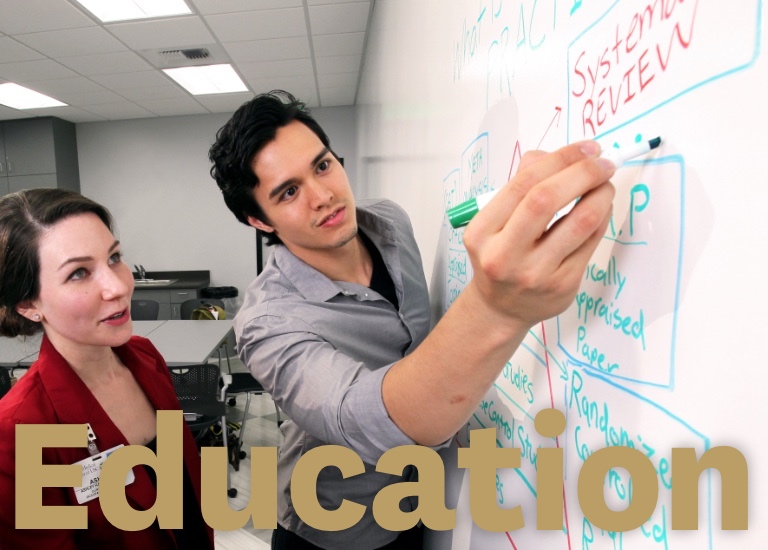The following FAQs might help with your inquiry into the Post-Professional Master's program. A more comprehensive list of Admissions FAQs is also available.
Do I need to take an English Proficiency Exam?
If your bachelor’s degree was earned in a non-English speaking country and you are not a US citizen or permanent resident, scores are needed from an official TOEFL (Test of English as a Foreign Language), IELTS (International English Language Testing System), or PTE (Pearson Test of English). Students from some English-speaking countries may also need to submit scores. We require that the student have verification of their scores within two years of intended enrollment.
Students whose native language is English and/or students with a bachelor’s degree from a U.S. college or university are exempted from this examination.
For more information, refer to gradadm.usc.edu/lightboxes/international-students-english-proficiency.
What do I need to do after I get admitted to USC?
For information regarding applying for your visa, on-campus employment, documents needed, which clothing to bring, etc., please visit ois.usc.edu.
What resources does USC Chan provide to support international students?
The following FAQs might help with your inquiry into the Entry-Level Doctoral (OTD) program. A more comprehensive list of Admissions FAQs is also available.
Can pre-requisite courses be in progress while applying to the program?
Prerequisite courses may be in progress or incomplete while applying to the program. Prerequisite courses must be completed by Spring semester of the year that you plan to start the program. When you complete the OTCAS application, you will have the opportunity to identify the course(s) you have taken that you would like the admissions committee to consider for each prerequisite for our program.
Is volunteer experience required?
We know that geographic and financial considerations limit access for students to gain volunteer experience and we therefore do not require or evaluate volunteer hours for our holistic admissions. We do highly recommend educating yourself about the various practice settings of occupational therapy through readings, videos, volunteering, or shadowing, as you are able. Because volunteer work will not be considered in your application, you do not need to document volunteer hours for the purpose of applying to our program.
We maintain a list of local and national OS/OT observation and volunteer opportunities. This list is not exhaustive, so please feel free to contact other sites in your area.
What are the similarities and differences between an Entry-Level Master’s degree and an Entry-Level OTD degree?
Both Entry-Level Master’s and Entry-Level OTD programs prepare students for entry-level practice as a newly certified and licensed occupational therapist. Both programs also include Level I and Level II fieldwork experiences.
A key difference between the Entry-Level Master’s and Entry-Level OTD programs is your opportunity to work closely with our world-class faculty to gain the knowledge, skills and experience to apply evidence to a specialty practice area, develop new and sustainable programs, and thrive as an effective leader. One of the most enriching aspects of the Entry-Level OTD program is the Doctoral Capstone Experience (DCE) following the completion of core courses and Level II fieldwork experiences. The DCE is a pathway to developing individualized learning experiences in clinical practice, research, policy and advocacy, administration or pedagogy. These signature elements are key anticipated differences between the Entry-Level Master’s and the Entry-Level OTD degree programs. To achieve these goals, earning the Entry-Level OTD degree is anticipated to require 36 months.
The following FAQs might help with your inquiry into the Post-Professional Doctorate (OTD) program. A more comprehensive list of Admissions FAQs is also available.
Are any Post-Professional OTD courses offered online?
Post-professional OTD courses may be taken either in person or online, allowing you to complete the degree in an entirely remote format.
Can I get paid for my residency or use my workplace as my residency site?
It is possible to use your workplace as your residency site. Most sites hire residents at a competitive OTR/L rate, or offer financial support in the form of a stipend or scholarship.
Does the division offer scholarship support?
Yes, the Division offers competitive, merit-based scholarship awards. A typical scholarship award covers 12 units. All applicants to the Post-Professional OTD are automatically considered for scholarship awards. Financial awards may be awarded at any time prior to the start of classes, and sometimes during the academic year itself. All awards are contingent upon USC budget approval.


![]() Subscribe | RSS
Subscribe | RSS


